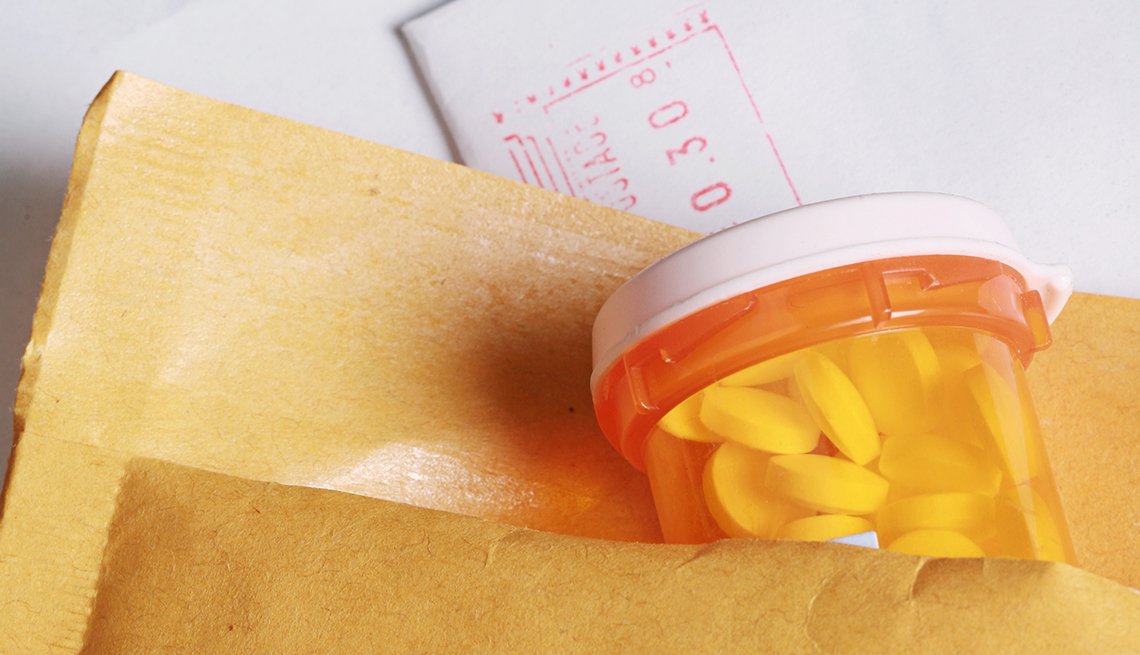How early will insurance refill a prescription? Many people usually ask this question today. Thus, we have made this post to assist you. When it comes to having a prescription refilled early, the simple response sometimes raises more issues than it solves.
Can prescriptions get filled quickly, to begin with? If so, how many days till its due, and for what medications? These are some of the most frequently asked questions by patients. In truth, pharmacists often get asked these questions for several excellent and incorrect reasons. This post will aid you on all you need to know about how early insurance will refill a prescription. Come along!
How Early Will Insurance Refill a Prescription: Valid Reasons?

Besides prohibited medications, getting a prescription refilled early is limited to a few scenarios and circumstances. Even while there are certain circumstances when you can acquire early refills without explaining anything, this may frequently assist you in securing early refills for really required or justified reasons. Here are a few additional well-accepted reasons why you should be able to acquire early refills without difficulty:
Traveling or vacation planning
You’re going on vacation, and you’ll need a stock of your prescription to last you for the duration of your trip. Pharmacies and pharmacists know that this circumstance might arise while traveling, taking an extended holiday, or even going for business.
Thus, this is one of the best reasons to fill your prescriptions as soon as possible.
However, your pharmacist will need to contact your prescription insurer to see whether a “vacation override” is available (unless the insurance policy does not support it). This will enable you to obtain refills ahead of time to take with you on your trip or holiday.
If you’re paying cash, you’ll need to clarify your trip plans and vacation time, explaining the circumstance to the pharmacist’s aids in their acceptance of the rationale. A pharmacist may refuse prescriptions.
Once the pharmacist has received the explanation and agreed to proceed, the pharmacist will verify how many refills are left. The prescription will get renewed depending on whether or not you have a refill left.
Your prescription drugs have gotten stolen
If you have a police record for the lost prescription that you can present to your doctor or pharmacy, this is possible, alternatively, if you misplace or forget to take your meds. Uncertainty is something we all have to deal with as humans.
Patients may want an early refill not because their drugs have run out but because they have misplaced or stolen their medication. If your medication gets covered by insurance, your pharmacists will contact your insurer and seek a loss override, which will allow you to get early refills.
However, keep in mind that many insurers only allow this sort of loss override or the opportunity to seek an early refill due to lost or stolen prescriptions once or twice a year.
If you’re paying with cash, the first thing you should do is describe how the prescription was stolen or misplaced. In the instance of a missing drug, it’s best to accompany it with a police statement so that the pharmacist is confident in the evidence. If your medications are non-controlled may have your prescription filled early for this reason or scenario.
A weather emergency is on the horizon
The weather forecast has issued a strong warning, and you should maintain a supply of medicine on hand if you can’t get to the pharmacy or if it is closed. Weather conditions are unpredictably variable.
So, if a weather disaster gets expected, it’s a realistic and acceptable scenario to get your medicines renewed early. This is because when weather conditions are unexpected, such as an impending storm, patients will be unable to leave home for many days. Pharmacies may even get shuttered for the sake of public safety. Clients will need to seek an early refill, in this case, to take their prescription on days when they are unable to leave the house.
This is particularly true if drugs get used regularly. As a result, weather issues are another perfectly acceptable reason to get your medicines renewed early. Patients must, however, prepare ahead of time and, if feasible, record their reasons to convey them effectively.
How Early Will Insurance Refill a Prescription?

The materials provided by your doctor or clinician get used to refill prescriptions. This supply usually gets estimated by dividing the total amount of medication given by the number of times taken each day.
Early refills of non-controlled drugs are permitted at least two days before the expiration of a 30-day supply. On the 28th day, for example, you may replenish a 30-day supply. However, these dates may get influenced by prescription insurance coverage.
Routine drugs, such as those for blood pressure or diabetes, may, for example, be replenished five days ahead of time. This may happen as early as the 25th day.
The same is true when it comes to refilling a 90-day prescription. It’s possible to have it renewed before it expires by at least two days.
When will Insurance Refill a Schedule III or IV Prescription? (Medications under Control)

According to federal laws, controlled drugs such as Schedules III and IV may only be renewed early on an approved prescription, generally within two days for a 30-day supply. When it comes to refilling Schedule 3 and 4 medicines, state and local legislation may differ somewhat, for up-to-date information, contact your local pharmacist.
It’s also worth noting that restricted medications may only be renewed five times in the first six months after being issued. Patients should receive a new prescription if the five refills have run out or six months have gone from the issue date (whichever comes first). If the prescription has elapsed, it will not get refills for such regulated drugs.
Frequently Asked Questions
How early will insurance refill a prescription?
Early refills of non-controlled drugs are permitted at least two days before the expiration of a 30-day supply. On the 28th day, for example, you may replenish a 30-day supply.
For certain medications, why can’t you have a prescription refilled sooner?
The primary reason why certain medications cannot get renewed early is to avoid drug addiction and misuse, particularly of restricted narcotics. If these restricted prescriptions are not monitored, patients may visit many pharmacies and request early refills to feed their addiction.
They can trade on the black market as well. Certain drugs cannot get refilled early due to these factors.
Several insurance companies restrict patients’ ability to get early refills for safety reasons. Insurance companies keep track of such skills to get early refills for various reasons.
A person using diabetic drugs, for example, may be able to acquire an early refill via particular insurance coverage possibilities. This is as opposed to someone who frequently uses opioids to relieve pain. On the other hand, most insurance companies provide exceptions that allow patients to get medication refills sooner.
This is reasonable, given that these alternatives address the most common reasons for a patient’s requirement for a prescription to get filled early.
How do I get a controlled substances emergency prescription refill?
Prescriptions that get supplied for instant and early use, at least before the end of the stipulated term, are known as emergency prescriptions. The health practitioner must contact a pharmacist in a controlled drug and request that the restricted drugs get dispensed.
However, within seven days of the emergency prescription getting allocated, the healthcare professional must deliver a written and signed prescription to the pharmacist.
When administering such early refills for urgent reasons, however, the amount supplied should only be enough to treat the patient for the duration of the emergency.
Is it possible to have a prescription refilled sooner?
Yes. You may have a prescription refilled sooner if certain conditions get met. The primary purpose for allowing certain medications to get filled sooner is to safeguard patients from noncompliance.
This is on top of misusing drugs in terms of time, frequency, duration, and even dose. According to the CDC, around 3.8 billion prescriptions get given each year. And one out of every five prescriptions does not get filled on time. This frequently results in incorrect medicine dose, frequency, and duration.
This may also render the therapy unsuccessful as a whole. Drug non-adherence is harmful, and the World Health Organization stresses the need for adherence to medication throughout the treatment process for a good outcome.
Conclusion
In conclusion, early medication refills through insurance are pretty possible. In most circumstances involving early refills, both pharmacists and physicians will get required to participate. This is entirely valid if you don’t have any applicable insurance coverage.
Your pharmacists may offer you an early refill if your insurance policy provides a “travel exemption” or “emergency exception.” However, if you pay cash, you will almost certainly need a new prescription from your doctor.
For example, for a 60-day supply, the doctor will have to indicate the number of days of early refills authorized. While all of these things are pretty achievable with non-controlled pharmaceuticals, having a prescription refilled early for controlled substances requires speaking with your prescribing doctor about your medical circumstance or emergency.
Furthermore, the tips on how early insurance will refill a prescription above will aid you immensely.




